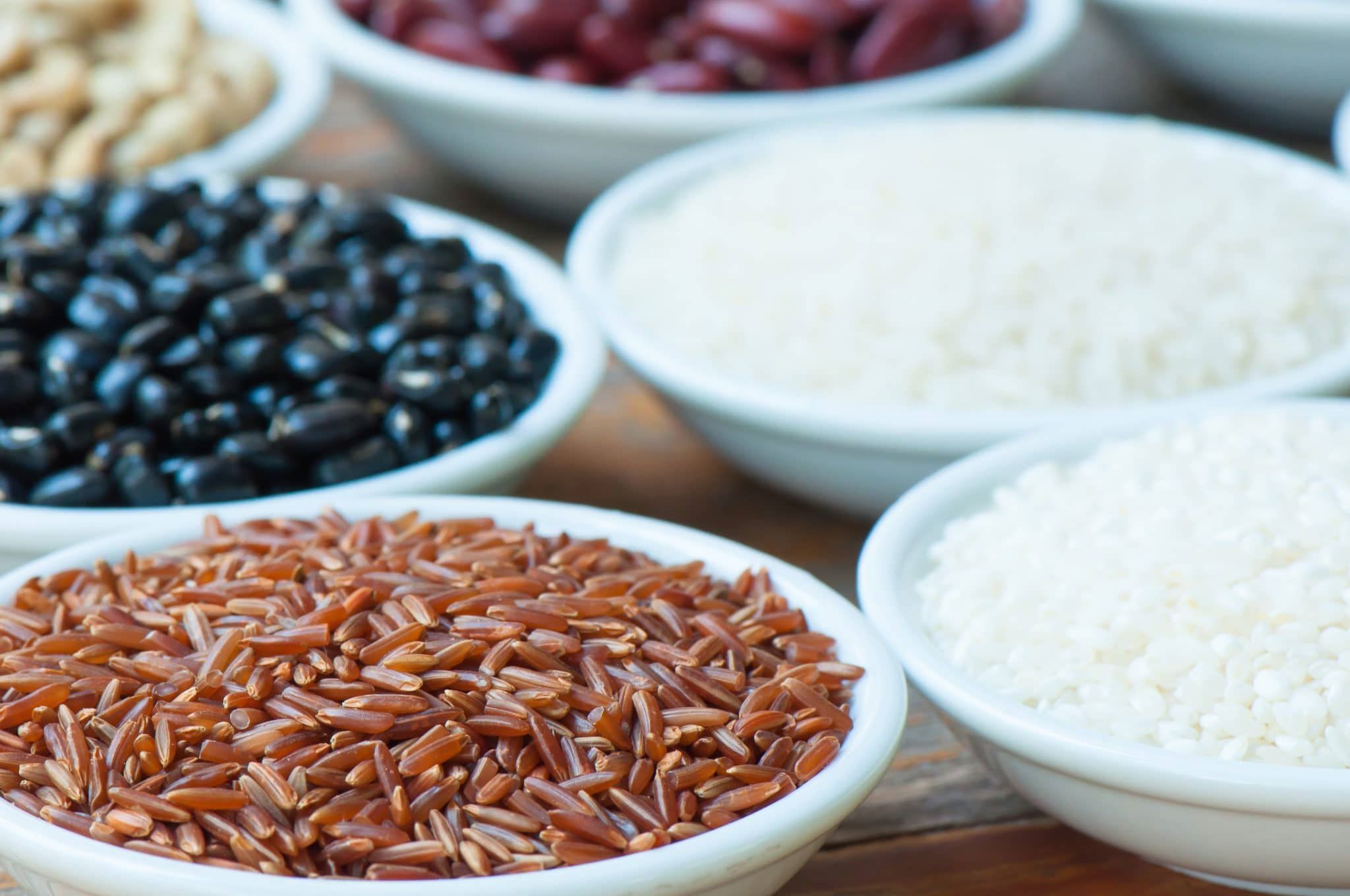Home>Health & Nutrition>The Optimal Protein Intake For Runners


Health & Nutrition
The Optimal Protein Intake For Runners
Published: February 22, 2024
Discover the optimal protein intake for runners and enhance your health and nutrition with expert advice. Reach your peak performance with the right dietary balance.
(Many of the links in this article redirect to a specific reviewed product. Your purchase of these products through affiliate links helps to generate commission for Therunningadvisor.com, at no extra cost. Learn more)
Table of Contents
- Understanding the Role of Protein in Running Performance
- Factors to Consider When Determining Protein Intake for Runners
- The Importance of Timing and Distribution of Protein Intake
- Recommended Sources of Protein for Runners
- Potential Risks of Inadequate or Excessive Protein Intake for Runners
- Practical Tips for Meeting Optimal Protein Intake for Runners
Understanding the Role of Protein in Running Performance
Protein plays a pivotal role in the overall performance and recovery of runners. As runners engage in high-impact activities, their muscles undergo continuous stress and strain. Protein serves as the building blocks for muscle repair and growth, making it an essential nutrient for runners aiming to enhance their endurance and strength.
During prolonged or intense running sessions, the body's muscle fibers experience microscopic damage. Protein is instrumental in repairing these microtears, thereby contributing to muscle recovery and adaptation. Additionally, protein aids in the synthesis of enzymes and hormones crucial for energy production and muscle function, further supporting a runner's overall performance.
Furthermore, protein is integral in maintaining a balanced immune system, which is particularly important for runners who often push their bodies to the limit. By supporting immune function, protein helps reduce the risk of illness and supports the body's ability to recover from the physical demands of running.
In essence, adequate protein intake is vital for runners to optimize their performance, minimize muscle damage, and support overall recovery. Understanding the multifaceted role of protein in running performance underscores its significance as a foundational component of a runner's diet.
Factors to Consider When Determining Protein Intake for Runners
When determining the optimal protein intake for runners, several key factors come into play. These considerations are essential in tailoring protein consumption to meet the specific needs of individuals engaged in running and other endurance activities.
1. Training Intensity and Volume
The intensity and volume of a runner's training regimen significantly impact their protein requirements. Endurance training, such as long-distance running, places prolonged stress on the muscles, leading to increased protein turnover. As a result, runners with higher training volumes and intensities may require elevated protein intake to support muscle repair and adaptation.
2. Body Weight and Composition
A runner's body weight and composition play a crucial role in determining their protein needs. Individuals with higher muscle mass or those aiming to build muscle through resistance training may require higher protein intake to support muscle protein synthesis and recovery. Additionally, body weight serves as a general indicator of overall energy expenditure, which can influence protein requirements.
3. Training Goals and Performance Objectives
Runners with specific performance objectives, such as improving endurance, increasing speed, or building muscle strength, must align their protein intake with their training goals. For instance, runners focusing on muscle hypertrophy may benefit from a slightly higher protein intake to facilitate muscle growth and repair, while those prioritizing endurance may require adequate protein to support sustained energy production and muscle recovery.
Read more: The Recommended Sugar Intake For Runners
4. Timing of Protein Consumption
The timing of protein consumption in relation to training sessions is a critical factor to consider. Consuming protein-rich meals or snacks in the immediate post-exercise period can enhance muscle protein synthesis and recovery. Additionally, distributing protein intake evenly throughout the day, including pre- and post-training meals, can optimize the body's ability to utilize dietary protein for muscle repair and adaptation.
5. Dietary Restrictions and Preferences
Individual dietary restrictions, such as vegetarianism or veganism, can influence the variety and sources of protein available to runners. It is essential for individuals with specific dietary preferences to carefully plan their protein intake to ensure they meet their nutritional needs while adhering to their dietary choices.
By taking these factors into account, runners can tailor their protein intake to align with their unique training demands, body composition, and performance objectives. Understanding the interplay of these considerations is crucial in optimizing protein consumption to support running performance and overall well-being.
The Importance of Timing and Distribution of Protein Intake
The timing and distribution of protein intake play a pivotal role in maximizing the benefits of protein for runners. By strategically incorporating protein into their daily dietary regimen, runners can optimize muscle repair, recovery, and overall performance.
Post-Exercise Protein Consumption
Consuming protein in the immediate aftermath of a running session is particularly crucial for runners. During exercise, especially high-intensity or endurance activities, the body's muscle fibers undergo microtears and depletion of glycogen stores. Post-exercise protein intake facilitates the process of muscle protein synthesis, aiding in the repair and regeneration of muscle tissue. Additionally, when combined with carbohydrates, post-exercise protein consumption can enhance glycogen repletion, promoting faster recovery and preparation for subsequent training sessions.
Pre-Exercise Protein Intake
Incorporating protein into pre-exercise meals or snacks can also benefit runners. By consuming protein before a run, individuals can provide their muscles with a readily available amino acid pool, potentially reducing muscle protein breakdown during exercise. This proactive approach to protein intake may contribute to improved muscle preservation and sustained energy levels during prolonged running sessions.
Distribution of Protein Throughout the Day
Beyond considering the timing of protein intake in relation to training sessions, the distribution of protein throughout the day is equally important for runners. Spreading protein consumption across multiple meals and snacks ensures a consistent availability of amino acids for muscle repair and growth. This approach optimizes the body's ability to utilize dietary protein, as opposed to consuming large protein portions in a single meal. By evenly distributing protein intake, runners can maintain a steady supply of essential amino acids, supporting ongoing muscle recovery and adaptation.
Bedtime Protein Consumption
Recent research has also shed light on the potential benefits of consuming a moderate amount of protein before bedtime. This practice, often referred to as nighttime protein feeding, has been shown to stimulate overnight muscle protein synthesis, contributing to muscle repair and growth during periods of rest. For runners, incorporating a protein-rich snack before bedtime may offer additional support for muscle recovery, potentially enhancing the overall adaptation to training stimuli.
In essence, the strategic timing and distribution of protein intake are integral components of a runner's dietary strategy. By capitalizing on the anabolic effects of protein consumption in the post-exercise period, optimizing pre-exercise protein availability, and evenly distributing protein intake throughout the day, runners can harness the full potential of protein to support their training, recovery, and long-term performance goals.
Recommended Sources of Protein for Runners
When it comes to meeting their protein needs, runners can benefit from incorporating a diverse array of high-quality protein sources into their diets. Opting for a variety of protein-rich foods not only ensures adequate intake of essential amino acids but also provides essential nutrients that support overall health and well-being. Here are some recommended sources of protein for runners:
1. Lean Poultry and Meat
Lean cuts of poultry, such as chicken and turkey, as well as lean cuts of meat, such as beef and pork, serve as excellent sources of high-quality protein. These options are rich in essential amino acids, particularly leucine, which plays a key role in stimulating muscle protein synthesis. Additionally, poultry and meat are abundant in iron and B vitamins, which are essential for oxygen transport and energy metabolism, respectively.
2. Fatty Fish
Fatty fish, including salmon, mackerel, and sardines, are not only rich in protein but also provide valuable omega-3 fatty acids. Omega-3s offer anti-inflammatory benefits, which can aid in reducing exercise-induced muscle inflammation and supporting overall recovery. Moreover, the protein content in fatty fish contributes to muscle repair and growth, making them an ideal protein source for runners.
3. Eggs
Eggs are a versatile and nutrient-dense protein source that can be easily incorporated into a runner's diet. They contain all nine essential amino acids, making them a complete protein source. Additionally, eggs are rich in choline, a nutrient important for muscle function and overall metabolism. Whether consumed as part of a balanced breakfast or incorporated into post-workout meals, eggs offer a convenient and effective protein option for runners.
4. Dairy Products
Dairy products, such as Greek yogurt, cottage cheese, and milk, are valuable sources of protein and essential nutrients. Greek yogurt, in particular, stands out for its high protein content and probiotic properties, which can support gut health and immune function. Additionally, dairy products provide calcium and vitamin D, which are crucial for bone health and muscle function, further benefiting runners.
5. Legumes and Pulses
For vegetarian and vegan runners, legumes and pulses, including lentils, chickpeas, and black beans, offer substantial protein content along with dietary fiber. This combination supports satiety and digestive health while providing a diverse array of essential amino acids. Incorporating legumes and pulses into meals and snacks can contribute to meeting protein requirements while offering valuable phytonutrients and antioxidants.
6. Plant-Based Protein Sources
Plant-based protein sources, such as tofu, tempeh, quinoa, and edamame, offer complete or complementary protein profiles suitable for runners following vegetarian or vegan dietary patterns. These options provide essential amino acids, along with additional nutrients such as iron, magnesium, and antioxidants. By diversifying their plant-based protein sources, runners can ensure comprehensive nutrient intake to support their training and recovery needs.
By incorporating these recommended sources of protein into their diets, runners can optimize their protein intake while benefiting from a spectrum of essential nutrients. Whether selecting animal-based or plant-based options, prioritizing high-quality protein sources is fundamental in supporting muscle repair, recovery, and overall performance for runners.
Potential Risks of Inadequate or Excessive Protein Intake for Runners
In the realm of nutrition for runners, striking a balance in protein intake is paramount, as both inadequate and excessive consumption pose potential risks to overall health and performance. Understanding the implications of suboptimal protein intake is crucial for runners aiming to optimize their dietary strategies.
Risks of Inadequate Protein Intake
Insufficient protein consumption can lead to detrimental effects on a runner's performance and well-being. Inadequate protein intake may compromise the body's ability to repair and rebuild muscle tissue, hindering recovery from training sessions and potentially increasing the risk of overuse injuries. Moreover, insufficient protein can impede the synthesis of enzymes and hormones essential for energy production, potentially leading to decreased stamina and endurance during running activities. Additionally, inadequate protein intake may compromise immune function, leaving runners more susceptible to illness and prolonged recovery periods.
Risks of Excessive Protein Intake
On the other end of the spectrum, excessive protein intake can also pose risks to runners. Consuming an abundance of protein beyond the body's needs may strain the kidneys, as they are responsible for processing and excreting nitrogen byproducts from protein metabolism. Prolonged excessive protein intake could potentially lead to kidney function impairment, particularly in individuals with pre-existing kidney conditions. Furthermore, an excessively high protein diet may displace other essential nutrients, potentially leading to imbalances in overall nutrient intake. This imbalance could impact bone health, as excessive protein consumption may increase calcium excretion, potentially affecting bone mineral density over time.
Striking a Balance
Finding the optimal protein intake for runners involves navigating between these potential risks. By aligning protein consumption with individual training demands, body composition, and performance objectives, runners can mitigate the risks associated with inadequate or excessive protein intake. Tailoring protein intake to support muscle repair, energy production, and immune function is essential for sustaining long-term running performance and overall well-being.
In essence, recognizing the potential risks of inadequate or excessive protein intake underscores the importance of a balanced and individualized approach to protein consumption for runners. By prioritizing a well-rounded dietary strategy that meets protein needs while considering overall nutrient intake, runners can optimize their performance and mitigate the potential risks associated with suboptimal protein consumption.
Practical Tips for Meeting Optimal Protein Intake for Runners
-
Prioritize Protein-Rich Breakfasts: Start the day with a protein-packed breakfast to kickstart muscle repair and support sustained energy levels. Incorporate eggs, Greek yogurt, or protein-rich smoothies to lay a solid foundation for the day's nutritional intake.
-
Strategic Post-Run Nutrition: Following a run, aim to consume a balanced meal or snack containing both protein and carbohydrates within the first hour. This post-run nutrition aids in replenishing glycogen stores and initiating muscle recovery.
-
Include Protein in Every Meal: Distribute protein intake evenly throughout the day by incorporating lean meats, fish, legumes, or dairy into each meal. This approach ensures a steady supply of amino acids for muscle repair and growth.
-
Snack Smartly: Opt for protein-rich snacks, such as nuts, seeds, or protein bars, to bridge the gap between meals and support muscle recovery. Portable and convenient options can help maintain consistent protein intake throughout the day.
-
Leverage Plant-Based Proteins: For vegetarian or vegan runners, explore a variety of plant-based protein sources, including tofu, tempeh, and quinoa. Diversifying plant-based protein options ensures comprehensive amino acid intake and essential nutrient diversity.
-
Customize Protein Intake: Tailor protein consumption based on training intensity and volume. On days with more rigorous training, consider slightly increasing protein intake to support muscle repair and adaptation.
-
Hydration and Protein Synthesis: Stay adequately hydrated, as water plays a crucial role in facilitating protein synthesis and overall nutrient transport within the body. Proper hydration complements protein intake in supporting muscle recovery.
-
Periodize Protein Intake: Adjust protein intake based on training cycles and recovery periods. During intense training phases, slightly elevate protein consumption to meet increased muscle repair demands, while allowing for adequate recovery during rest periods.
-
Incorporate Protein Before Bed: Consider consuming a protein-rich snack before bedtime to promote overnight muscle protein synthesis. This practice supports muscle recovery during periods of rest, contributing to overall adaptation to training stimuli.
By implementing these practical tips, runners can optimize their protein intake to support muscle repair, recovery, and long-term performance. Tailoring protein consumption to align with individual training demands and dietary preferences empowers runners to harness the benefits of protein for enhanced endurance and overall well-being.











